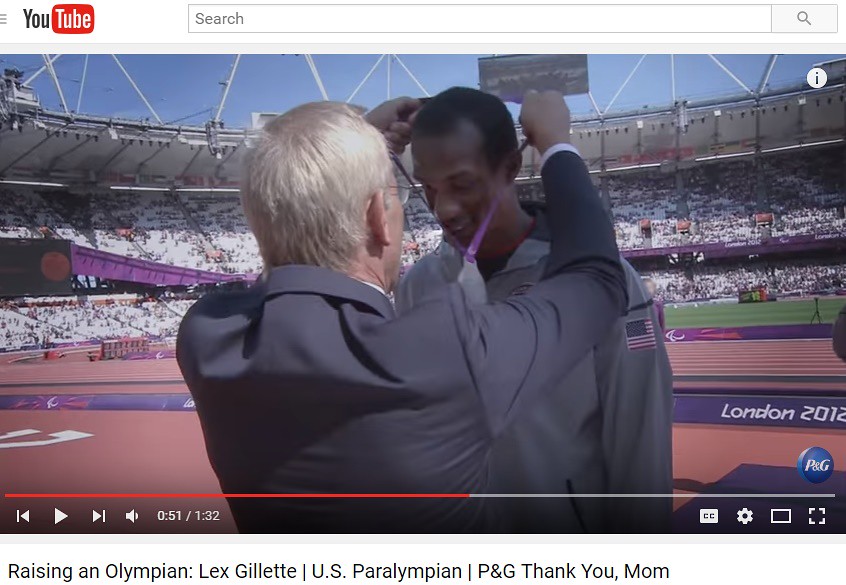Source: Malulu
Last week, President Trump announced the financial bail out of $12 billion for farmers who are losing large profits to the trade war. At first pass, a majority of Americans were expecting such a measure at the very least. Especially, since the President himself is to blame for the new trade war between countries who used to have agreements prior to the inauguration of the President. Not everyone is happy with the aid offered to the farmers negatively impacted by tariff set by President Trump. In fact, the recipients of the trade relief have been chanting along with sending the message "Trade not Aid."
This slogan should come as no surprise to anyone who has received a large payout. The money is great in the short run - until the money runs out. That is, if all of the aid is spent on keeping up the farm output with no money coming in, then the money will run out quickly. Which brings us to the current state of affairs highlighted in an excerpt by Politico Agriculture sent out via e-mail on Monday shown below:
TRUE TARIFF BAILOUT WOULD COST $39 BILLION: The full cost of a government aid package to help U.S. all manufacturers, farmers and fishermen negatively affected by President Donald Trump's new tariffs on steel and aluminum from around the world and a host of products from China could reach $39 billion, the U.S. Chamber of Commerce reports this morning. That works out to be another $27 billion on top of the $12 billion the Trump administration announced last week to help U.S. farmers."While America's agricultural industry has been hit extremely hard by escalating tariffs, it's not alone," Neil Bradley, U.S. Chamber executive vice president and chief policy officer, wrote in a blog post. "Thousands of U.S. companies - including manufacturers, input suppliers, fisherman, and businesses from numerous other industries - are finding it more difficult to sell American made products abroad amid the growing trade war."Other sectors are feeling the pain: The business group estimates that U.S. automobile, motorcycle and parts manufacturers would need up to $7.6 billion in federal aid if the assistance promised for farmers is extended to other sectors. Chemical manufacturers would need $960 million; prepared food manufacturers, $884 million; fishermen and crabbers, $811 million; soap manufacturers, $725 million; beverage manufacturers, $765 million; shipbuilders, $632 million; and furniture makers, $567 million.Last week, U.S. Trade Representative Robert Lighthizer told lawmakers at a Senate Appropriations subcommittee hearing the administration had no plans "at this time" to extend its farmer aid package to other sectors.Bradley, in the Chamber's blog post, made clear what the business group would really wants is for Trump to remove the tariffs and back off from the threat of imposing more. "The best way to protect American industries from the damaging consequences of a trade war is to avoid entering into a trade war in the first place," he said.Steel needs help ... because of the steel tariffs?: Ironically, some of the biggest recipients of an expanded aid package could be two sectors, steel and aluminum, Trump set out to help with his tariffs. A number of countries have retaliated against U.S. steel and aluminum exports, so companies that produce steel and/or manufacture steel products could need $6.4 billion in federal aid and U.S. aluminum companies could need $2.4 billion, the Chamber said.... AND MORE ON THE TARIFFS: USDA Secretary Sonny Perdue had been in Argentina since Friday, meeting with his fellow ag ministers from the Group of 20 nations. While there, he told Reuters that farmers shouldn't expect to be completely compensated for their losses. "Obviously this is not going to make farmers whole," Perdue said. He also said that about $7 billion to $8 billion of the aid will be in direct cash relief, while other money will go toward export promotion and buying up excess crops.War of words, and worlds: Officials of the influential Koch network warned that President Donald Trump's tariffs could result in "long-term damage" to the country."When in order to win on an issue someone else has to lose, it makes it very difficult to unite people and solve the problems in this country. You see that on trade: In order to get to a good place on trade, convince the American people that trade is bad, " Brian Hooks, one of Charles Koch's top deputies, said this weekend during a briefing for reporters at the network's gathering in Colorado Springs, Colo., POLITICO's Maggie Severns reported.Those comments prompted former White House chief strategist Steve Bannon to attack the network in turn. In an interview with POLITICO on Sunday, Bannon called the comments unhelpful. "We can have a theoretical discussion later, OK? This is why they don't know what it means to win, OK?"
The excerpt shown above illustrates the loss or potential loss to the deficit of either $12 billion or $39 billion regardless of who is correct. Either way, the United States of America has officially opened an unlimited credit card account to "Make America Great Again" -- at least that is what is supposed to be happening. The opposite seems to be unveiling in reality though.
What is surprising about the situation America finds itself in -- in regards to the 'trade war' is that even if the United States could recover or agree on trade agreements with countries based on the previous tariffs, our country would still lose out. The trade agreements which the United States previously had with other countries had 'special provisions' attached to them. The possibility of regaining these 'special provisions' is out the door heading into the future.
Which means that even if similar relations were recovered, the 'special provisions' would be gone. "Free Trade" is based on certain deficits incurred by various countries. While the United States appears to be 'a loser' on trade deals, as a country the United States has been a 'winner' in a large amount of situations. I discussed briefly 'global free trade' in a previous post. The United States is considered the 'major player' on the world stage -- at least as of 2 years ago.
This position has quite possibly changed over the last 2 years. The current trade war has not helped us on the international stage. As the excerpt above states: "When in order to win on an issue someone else has to lose, it makes it very difficult to unite people and solve the problems in this country. You see that on trade: In order to get to a good place on trade, convince the American people that trade is bad" -- The American people are now being convinced by politicians that being taken advantage of is a terrible cost of doing business on the world stage. That is not necessarily the case.
Conclusion...
Bad news consists of recent events such as China telling shipping boats carrying up to 1.5 million shipping boxes of cherries to turn around. Which is to say, over night, the demand for cherries all over China dropped to zero. This results to a HUGE SURPLUS of cherries being dumped onto the United States produce market -- which will drive prices down. In the short term, cost reduction seems great. Although, in the long term, profits suffer -- farmers suffer -- then in return -- consumers suffer. Not great.
Other commodities (products) will face similar fates. Look for increases in prices for consumer goods as a result. The Trump Administration has been handing out 'exemptions' to certain corporations which make them 'exempt' toward trade tariffs. How does that help the United States in a trade war? The answer appears to be that the exemptions amount to setting us further back as a trade negotiator on the world stage. Which means in certain cases, the United States looks 'uncertain' or 'unstable' in trade negotiations. Call your elected congressional leaders and demand that trade agreements be elevated to a top position for our nation. Follow the farmers lead "Trade not Aid".
Related Blog Posts:
How Many Cherries Are In 1.5 Million Shipping Boxes?
Parameters: Trade Tariffs Will Affect International Science
Parameters: Tariffs Affect Trade In Both Directions -- In And Out Of The USA
Parameters: Steel And Aluminum Tariffs Are Not Isolated - They Are Tied To Trading Of Other Vital Goods
Parameters: One Parameter Change In The Trade Machine Leads To A 'Re-Adjustment' Of Another




